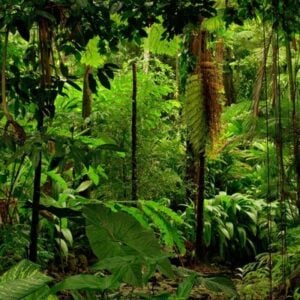On 14 July 2025, Minister for Education and Youth Helen McEntee announced nearly €500,000 in funding for ten youth-led climate justice projects across Ireland. The funding, provided through the Youth Climate Justice Fund 2025, is aimed at supporting initiatives that engage young people aged 8 to 25 in climate action and awareness. The projects span education, advocacy, community outreach, and hands-on environmental initiatives.
The Youth Climate Justice Fund seeks to empower young people through meaningful participation in climate-related efforts at local, regional, and national levels. Projects funded in 2025 include a hydrogen education programme, a water conservation awareness initiative, a climate justice debate series, and a games-based curriculum focused on climate change adaptation. These initiatives aim to develop climate literacy, critical thinking, and leadership among youth, fostering long-term engagement and action.
The fund aligns with the national youth strategy “Opportunities for Youth,” launched in 2024, which emphasizes equality and rights-based approaches in youth work. Climate justice was identified by young people as a major priority, and the fund reflects Ireland’s commitment to the Sustainable Development Goals by embedding climate action within youth services.
All ten projects selected for 2025 funding are led by national youth organizations that are supported under the Department of Education and Youth’s Youth Services Grant Scheme. Each initiative is tailored to address specific aspects of climate justice, combining innovation with education and community participation.
One of the funded projects is Kinia’s Hydrogen Education Programme, which offers 100 young people hands-on experience with renewable energy. Designed using Kinia’s scalable framework, it focuses on inclusivity, skill development, and youth leadership. Similarly, Foróige’s proposal centers on climate justice initiatives embedded in its youth engagement work, aiming to provide young people with the tools and knowledge to be change-makers in their communities.
Ógras is leading a project on water justice, educating youth on water scarcity and pollution through workshops and outdoor learning. The programme highlights the connection between water access and broader climate justice, particularly for marginalized populations.
Junior Chamber International (JCI) Ireland will expand its Climate Justice Debate Series to five universities, partnering with student groups to encourage dialogue, critical thinking, and climate advocacy. These debates are designed to train young people in public speaking and policy analysis, preparing them to lead climate conversations.
The Red Cross Red Crescent Climate Centre’s “Y-Adapt” programme will be integrated into youth services, using interactive games to teach climate adaptation to young people aged 13 to 25. The initiative aims to enable participants to develop and implement local climate projects, deepening their community impact.
Voluntary Service International (VSI) will run workshops, both online and in-person, exploring climate justice through a human-centered lens. The programme equips participants to become climate advocates, create awareness campaigns, and promote social equity within climate activism.
SpunOut will develop a digital Climate Hub offering expert-reviewed content on climate justice, mental health, and climate action. The hub is curated by young volunteers and aims to be a reliable source of information and support for Ireland’s youth.
Three projects were awarded funding as consortium applications. ECO-UNESCO leads one, building on a proven model of community engagement and youth participation since 2021. Another consortium led by the National Youth Council of Ireland (NYCI), with YMCA Ireland, Sphere 17, Gaisce, and Concern Worldwide, will deliver the “Future Generations Project,” which focuses on systemic and human rights dimensions of climate change through a global-local lens.
Youth Work Ireland’s (YWI) project will link Irish youth with peers in the Global South, expanding youth climate assemblies and enabling local groups to conduct citizen science, receive training, and develop policy innovations. The initiative strengthens international solidarity and enhances youth-led climate advocacy at all levels.
Collectively, these projects demonstrate a diverse and impactful approach to youth climate leadership in Ireland, advancing environmental justice through education, collaboration, and action.







